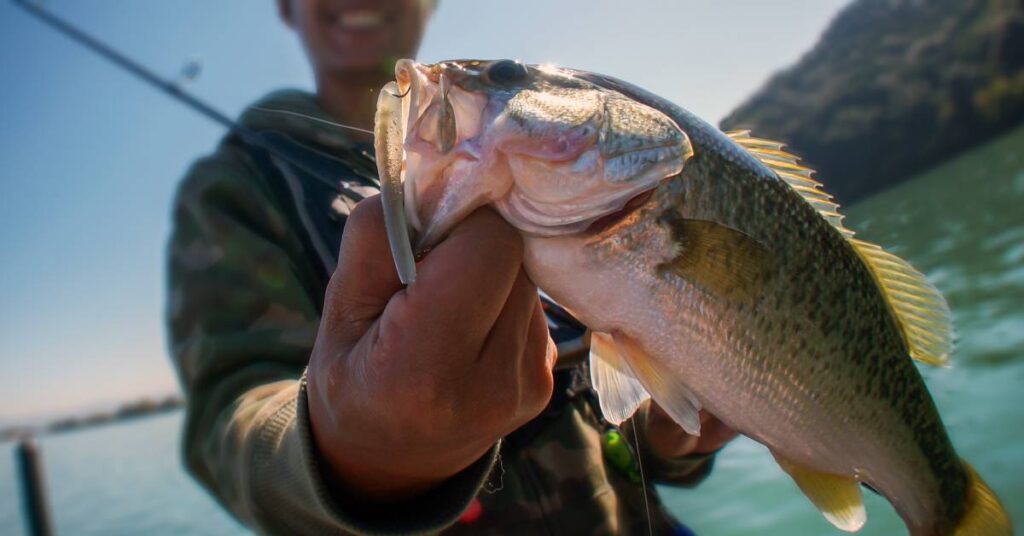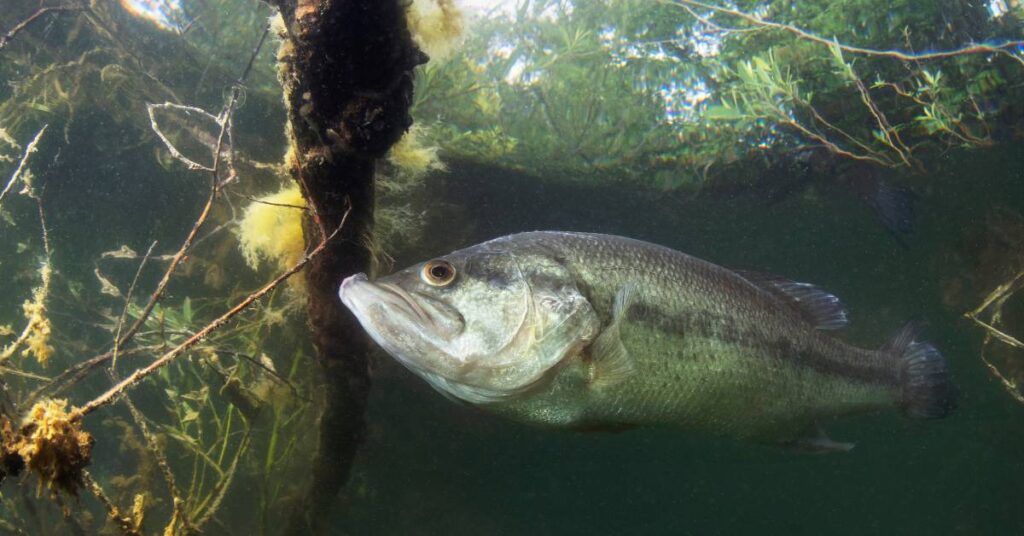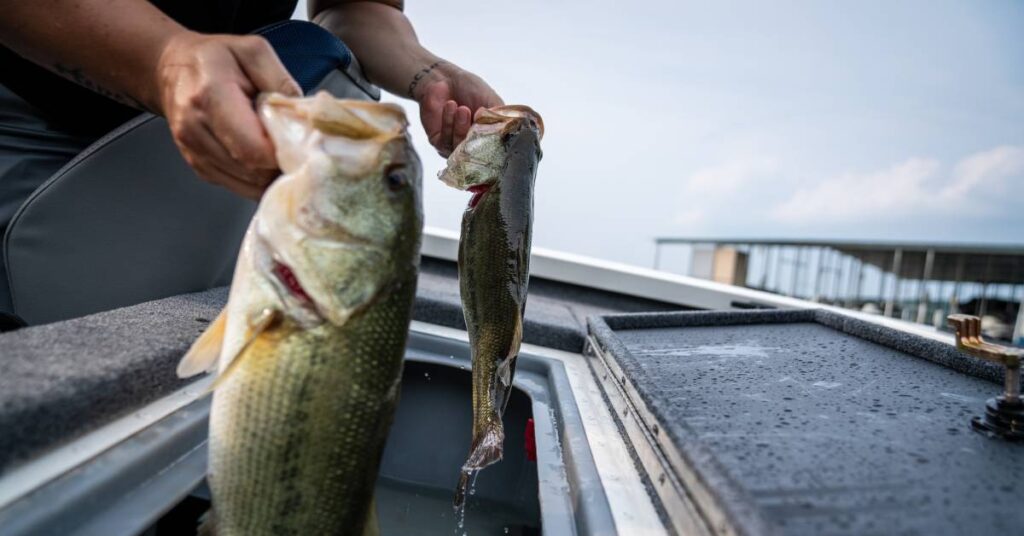
Although some see bass fishing in Texas as something you do in your spare time, it’s far more than that for others. The thrill of landing one of these tough-fighting fish can create memories that will last for a lifetime. However, there is one factor that can affect the quality of your bass fishing tour: the weather.
Even if you’re exceptionally skilled with a rod or know how to find a perfect fishing spot, Mother Nature can positively or negatively affect your experience by drawing the bass in closer or even scaring them away. Read on to get a better understanding of the impact of weather on bass fishing tours to make your next adventure more rewarding.
Cold Fronts Can Make Bass Fishing Harder
Texas residents have firsthand experience with the unpredictability of the local weather. One day, it can be warm and sunny. Then the next, the temperatures may drop.
When the air chills and those brisk winds push through, bass will retreat to deeper areas of the water. It’s quite similar to how you may react to cold temperatures when you curl up under a blanket and hunker down.
To adjust to a cold front, try fishing in deeper areas where bass might be hiding. While it won’t guarantee success every time, the right approach will make those tough conditions a little easier to handle.
Gentle Rainfall Will Improve Your Chances
Although cold fronts can drive bass into hiding, lighter rain showers have the opposite effect on them. The gentle rain energizes the fish and improves your odds of encountering them during your bass fishing tour.
Rain disrupts the surface of the water, providing cover for bass to become more active. A good topwater lure can work wonders in this situation, drawing explosive strikes that will make your heart race and your trip far more memorable.
Rain also oxygenates the water, which is a bonus for fish that prefer well-oxygenated environments. That increased oxygen level boosts their energy, making them more aggressive and more likely to strike your lure. When light rain falls, don’t shy away from taking a tour out on the water.
Warm Water Will Make Bass More Active
Another example of the impact of weather on bass fishing tours is how warm water can make the fish more active. Every angler loves a warm day on the lake, and it turns out bass do too. When water temperatures are higher, usually in the spring and summer months, bass are full of energy and ready to feed.
However, make sure the water temperature is just right. If it’s above 75 degrees Fahrenheit, the bass will likely travel to cooler areas, while temperatures under 50 degrees will make them harder to catch. If you do it right, you’ll have the adrenaline-boosting experience of reeling in a feisty bass bursting with energy.

Cloudy Skies Can Make Bass Easier To Catch
Don’t cancel your next bass fishing tour if the skies look cloudy. Instead, take advantage! Overcast weather creates natural conditions that seem to favor both bass and anglers alike.
Clouds block the sun, reducing visibility underwater. Bass, in turn, feel more comfortable swimming away from their usual hiding spots in search of prey. Without harsh sunlight pushing them into deep cover, they roam and feed more freely, especially along the edges of structures or drop-offs.
Overcast weather has another unexpected advantage: consistency. Fish in cloudy conditions often stay active longer throughout the day, meaning you won’t have to rely solely on peak feeding times like sunrise or sunset. That extra window of opportunity can make a huge difference, especially on a long tour when every catch counts.
Windy Conditions Can Be Very Helpful
Although you may think of wind as a hassle, it can work to your benefit when fishing for bass. The ripple effect of wind across the water’s surface reduces light penetration, making bass feel safer as they venture out from cover.
Plus, the increased movement in the water stirs up baitfish, creating an ideal feeding opportunity for predators like bass. Wind can also help conceal your presence, as the choppy water camouflages your boat and any disturbances you make.
Of course, fishing in windy conditions requires some adjustments. Be prepared to cast upwind or sidewind, and use heavier lures to maintain control. Even though it can feel a bit more challenging, wind can create an environment that makes your tour more exciting and rewarding.

Storms Can Make Bass Fishing Dangerous
If clouds are on your radar, storms should be too. While pre-storm conditions can sometimes create an electrical excitement that gets bass feeding aggressively, safety should always take priority when severe weather looms.
Lightning, high winds, and heavy downpours make bass fishing hazardous for anglers. Bass might keep swimming through rough weather, but staying out on the water during a storm isn’t worth the risk. Instead, keep an eye on the forecast, heading to shore at the first sign of threatening clouds or wind.
Once the storm passes, bass often return to active feeding as the water settles. That post-storm calm creates a golden opportunity to head back out and take advantage of the aftermath. Just remember to stay cautious with your surroundings and equipment if conditions take a turn.
Take Your Next Tour With Bassquatch Fishing
These examples show that weather isn’t just something you must check before heading out. Instead, it’s a force that affects how much bass you’ll catch. If you’re looking for an exceptional experience while fishing for bass in the Lone Star State, contact Bassquatch Fishing today. Our Austin bass fishing guides can take you to ideal local freshwater locations and advise you on how to judge weather conditions. Let us help you improve your skills as an angler so you can catch more bass fish.
[…] The local conditions can impact how much you enjoy your vacation and the activities you have planned. For example, if you plan to go fishing, the weather can affect bass fishing tours. […]